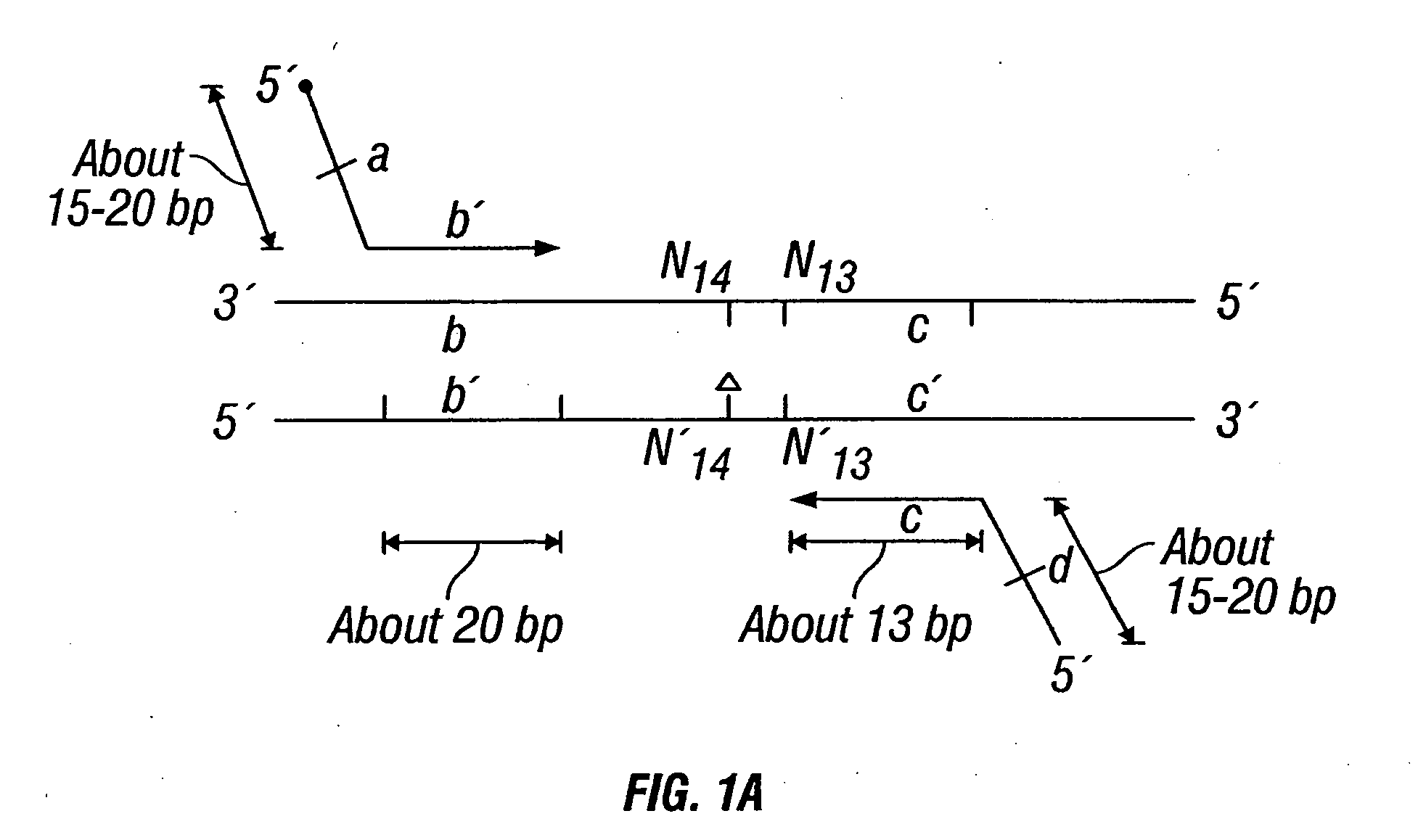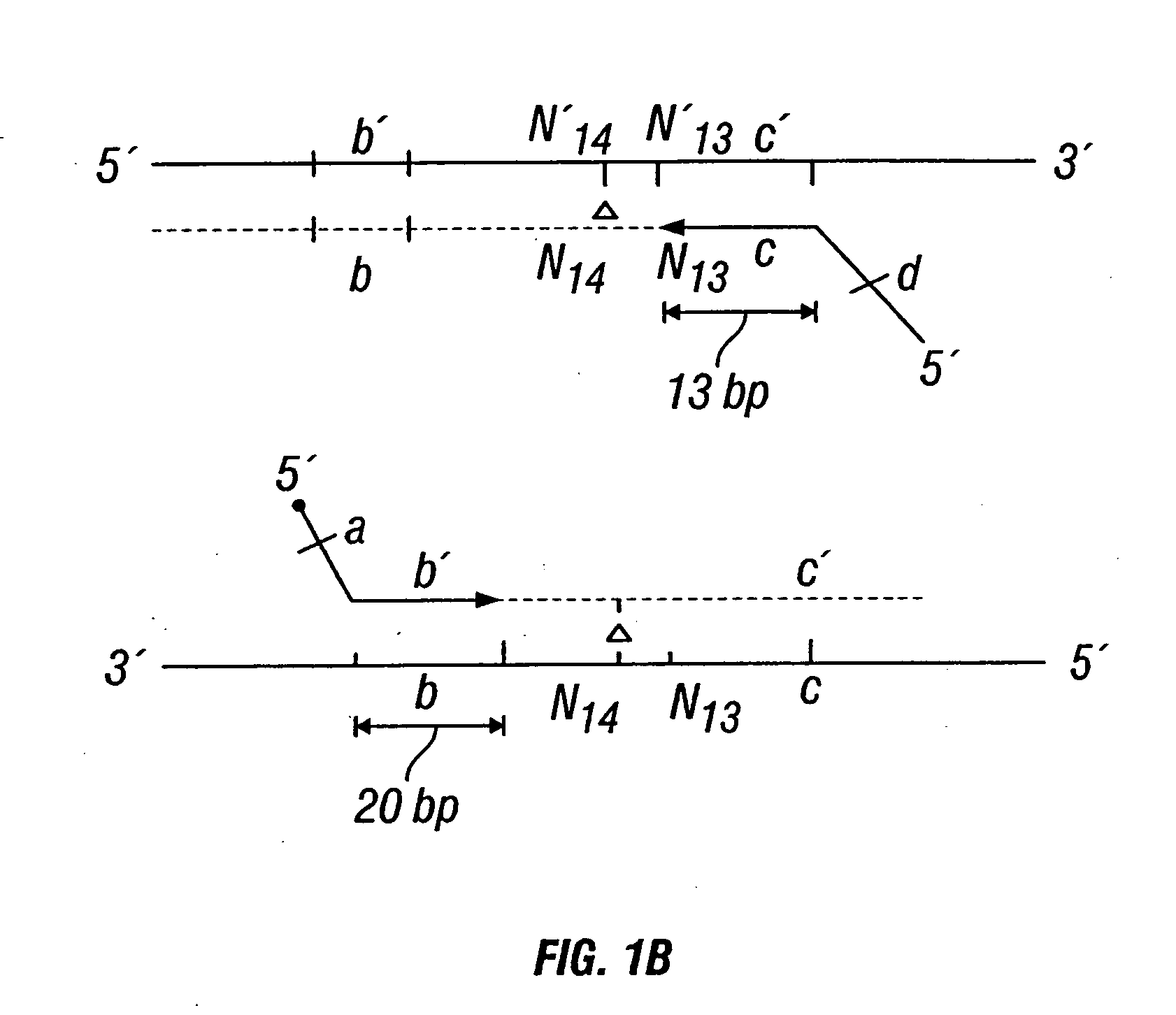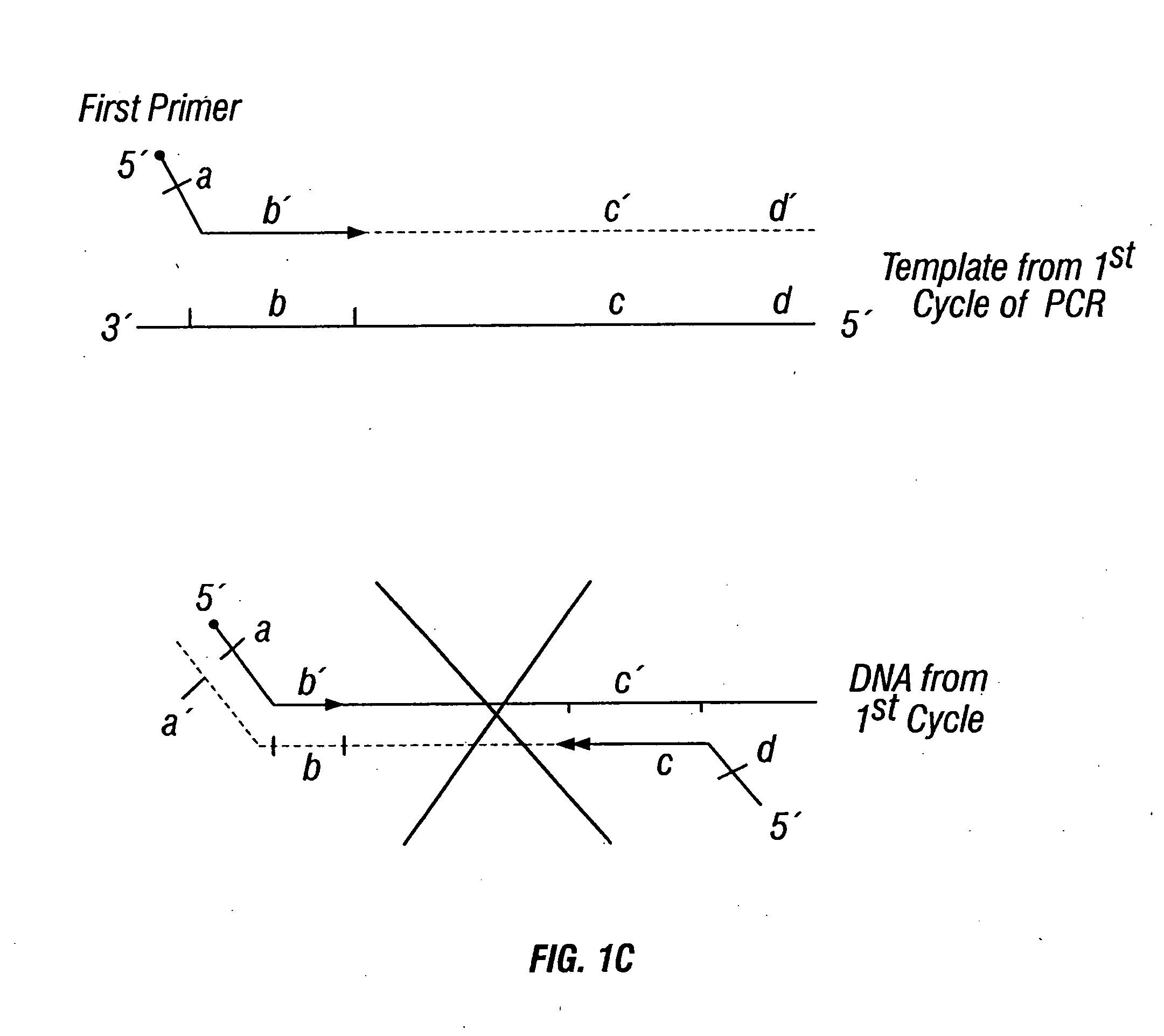Methods for detection of genetic disorders
- Summary
- Abstract
- Description
- Claims
- Application Information
AI Technical Summary
Benefits of technology
Problems solved by technology
Method used
Image
Examples
example 1
[0447] DNA sequences were amplified by PCR, wherein the annealing step in cycle 1 was performed at a specified temperature, and then increased in cycle 2, and further increased in cycle 3 for the purpose of reducing non-specific amplification. The TM1 of cycle 1 of PCR was determined by calculating the melting temperature of the 3′ region, which anneals to the template DNA, of the second primer. For example, in FIG. 1B, the TM1 can be about the melting temperature of region “c.” The annealing temperature was raised in cycle 2, to TM2, which was about the melting temperature of the 3′ region, which anneals to the template DNA, of the first primer. For example, in FIG. 1C, the annealing temperature (TM2) corresponds to the melting temperature of region “b.” In cycle 3, the annealing temperature was raised to TM3, which was about the melting temperature of the entire sequence of the second primer. For example, in FIG. 1D, the annealing temperature (TM3) corresponds to the melting tempe...
example 2
[0461] SNPs on chromosomes 1 (TSC0095512), 13 (TSC0264580), and 21 (HC21S00027) were analyzed. SNP TSC0095512 was analyzed using two different sets of primers, and SNP HC21S00027 was analyzed using two types of reactions for the incorporation of nucleotides.
Preparation of Template DNA
[0462] The template DNA was prepared from a 5 ml sample of blood obtained by venipuncture from a human volunteer with informed consent. Template DNA was isolated using the QIAmp DNA Blood Midi Kit supplied by QIAGEN (Catalog number 51183). The template DNA was isolated as per instructions included in the kit. Following isolation, template DNA from thirty-six human volunteers were pooled together and cut with the restriction enzyme EcoRI. The restriction enzyme digestion was performed as per manufacturer's instructions.
Primer Design
[0463] SNP HC21S00027 was amplified by PCR using the following primer set:
First primer:5′ ATAACCGTATGCGAATTCTATAATTTTCCTGATAAAGG 3′(SEQ ID NO:17)Second primer:5′ CTTAA...
example 3
[0499] Four loci of interest from chromosome 1 and two loci of interest from chromosome 21 were amplified in separate PCR reactions, pooled together, and analyzed. The primers were designed so that each amplified locus of interest was a different size, which allowed detection of the loci of interest.
Preparation of Template DNA
[0500] The template DNA was prepared from a 5 ml sample of blood obtained by venipuncture from a human volunteer with informed consent. Template DNA was isolated using the QIAmp DNA Blood Midi Kit supplied by QIAGEN (Catalog number 51183). The template DNA was isolated as per instructions included in the kit. Template DNA was isolated from thirty-six human volunteers, and then pooled into a single sample for further analysis.
Primer Design
[0501] SNP TSC 0087315 was amplified using the following primers:
First primer:5′ TTACAATGCATGAATTCATCTTGGTCTCTCAAAGTGC 3′(SEQ ID NO:15)Second primer:5′ TGGACCATAAACGGCCAAAAACTGTAAG 3′.(SEQ ID NO:16)
[0502] SNP TSC0214366...
PUM
| Property | Measurement | Unit |
|---|---|---|
| Fraction | aaaaa | aaaaa |
| Fraction | aaaaa | aaaaa |
| Fraction | aaaaa | aaaaa |
Abstract
Description
Claims
Application Information
 Login to View More
Login to View More - R&D
- Intellectual Property
- Life Sciences
- Materials
- Tech Scout
- Unparalleled Data Quality
- Higher Quality Content
- 60% Fewer Hallucinations
Browse by: Latest US Patents, China's latest patents, Technical Efficacy Thesaurus, Application Domain, Technology Topic, Popular Technical Reports.
© 2025 PatSnap. All rights reserved.Legal|Privacy policy|Modern Slavery Act Transparency Statement|Sitemap|About US| Contact US: help@patsnap.com



